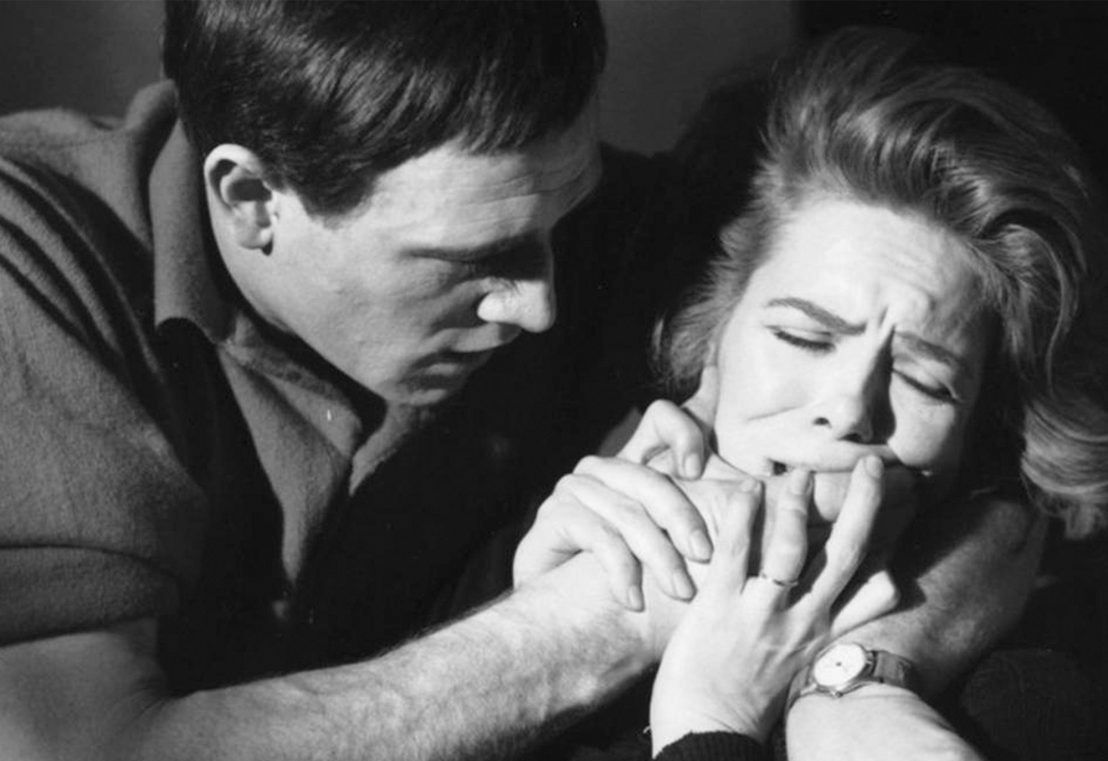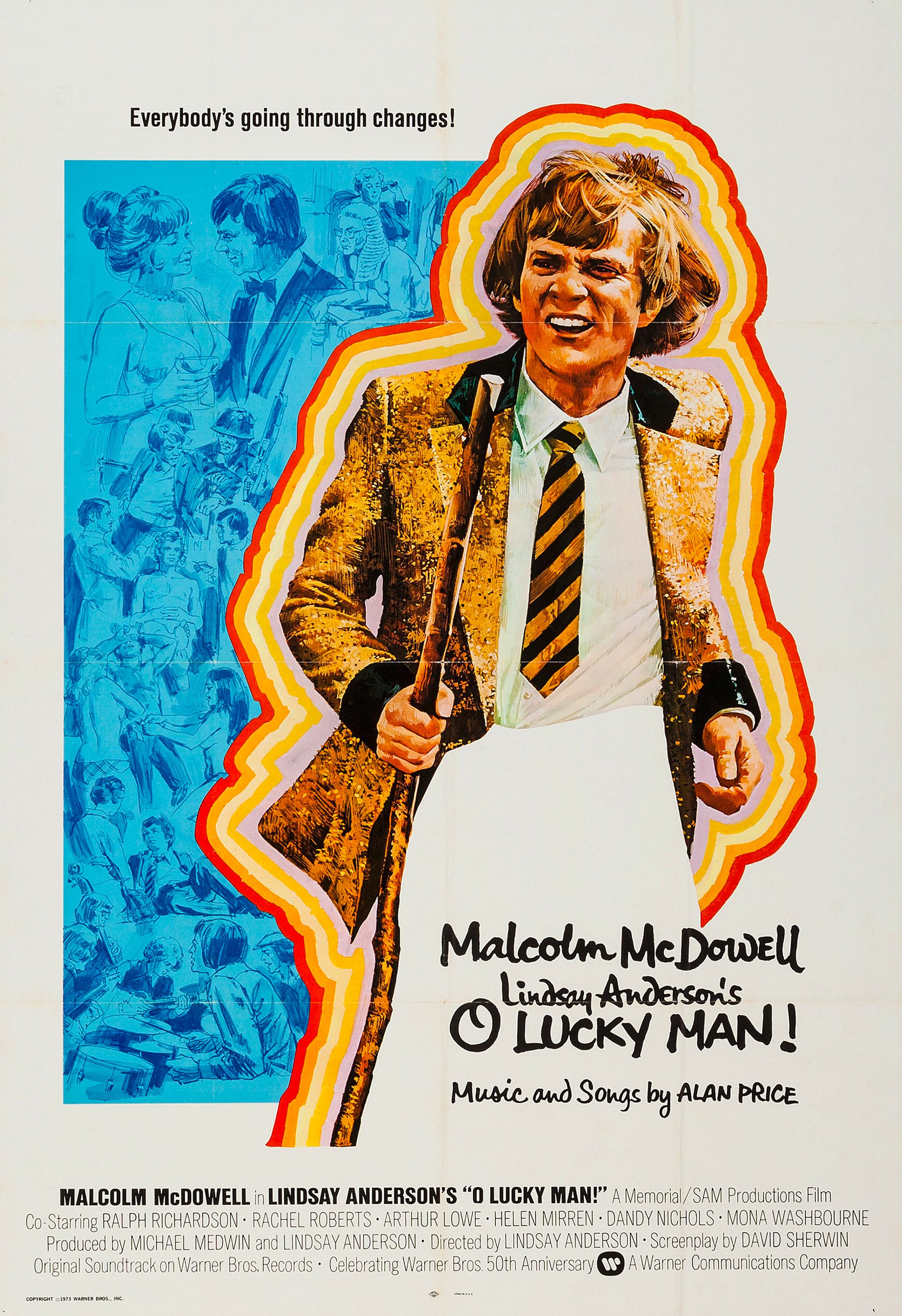"In a national cinema where conformism has often been seen as a virtue, Anderson stands out as a true individualist. His is a maverick voice, whether in the handful of feature films he directed or in the variety of other work (short films, documentaries, essays and criticism) he completed." - Robert Shail (British Film Directors: A Critical Guide, 2007)
Lindsay Anderson
Director / Producer / Screenwriter
(1923-1994) Born April 17, Bangalore, Kingdom of Mysore, British India (now Bangalore, India)
Top 250 Directors
(1923-1994) Born April 17, Bangalore, Kingdom of Mysore, British India (now Bangalore, India)
Top 250 Directors
Key Production Country: UK
Key Genres: Drama, Satire, Comedy, Short Film, Documentary, Psychological Drama
Key Collaborators: David Sherwin (Screenwriter), Alan Price (Composer), Jocelyn Herbert (Production Designer), Arthur Lowe (Character Actor), Peter Jeffrey (Character Actor), Graham Crowden (Character Actor), Malcolm McDowell (Leading Actor), Rachel Roberts (Leading Actress), Michael Medwin (Producer), Karel Reisz (Producer), Miroslav Ondrícek (Cinematographer), Mike Fash (Cinematographer)
Key Genres: Drama, Satire, Comedy, Short Film, Documentary, Psychological Drama
Key Collaborators: David Sherwin (Screenwriter), Alan Price (Composer), Jocelyn Herbert (Production Designer), Arthur Lowe (Character Actor), Peter Jeffrey (Character Actor), Graham Crowden (Character Actor), Malcolm McDowell (Leading Actor), Rachel Roberts (Leading Actress), Michael Medwin (Producer), Karel Reisz (Producer), Miroslav Ondrícek (Cinematographer), Mike Fash (Cinematographer)
"Of the same generation as the French nouvelle vague directors, Lindsay Anderson was a British cinephile and an auteurist critic who became an auteur director himself… His first fiction feature, This Sporting Life (1963), was a critical success but a commercial failure, and Anderson seemed unsure of which direction to take next. The two short films he made during this period are rarely screened, but he got back on track with If…., the first of his three intense collaborations with writer David Sherwin and actor Malcolm McDowell (who plays the lead role of Mick Travis in If…., O Lucky Man!, 1973, and Britannia Hospital, 1982). Taken together, the trilogy represents an ambitious, splenetic, imaginative response to a nation in terminal constitutional decline. Whether Anderson escaped that same fate is debatable." - Tom Charity (The Rough Guide to Film, 2007)
"Anderson was the last Free Cinema director to make his feature debut, but he arguably outstripped them all. Based on David Storey's novel, This Sporting Life (1963, produced by Reisz) is an excoriating account of an emotionally inarticulate footballer, whose aggression serves him well on the rugby field but not in dealing with the deeply inhibited woman he loves… Masterly as this film is, it is his next feature - If... (1968) - with which his name is inextricably associated… In British cinema's history, he is a lonely but strangely heroic figure." - Brian McFarlane (BFI Screen Online)

This Sporting Life (1963)
"Though he made only a handful of feature films, all of them were distinctive, groundbreaking efforts, informed with political agendas and frequently satirical. His influence was enormous. He organized the first "Free Cinema" program at London's National Film Theatre in 1956, for example, and wrote extensively about directors he admired, such as John Ford, and those he did not, criticizing the Grierson school of documentary filmmaking, for example. He felt that responsible artists should deal with the realities of 20th-century life." - James M. Welsh (The Encyclopedia of Great Filmmakers, 2002)
"Lindsay Anderson made sharp distinctions as a critic and confounded them as a filmmaker. Reputedly, he was “not a man to change his mind”, yet his films reveal that, in the best sense, he never made it up. Emphatic, decisive expressions of their maker’s often-ambivalent, essentially reactive consciousness, their styles are a collision of irreconcilable impulses, not only Brechtian, realist and surrealist by turns, but frequently all three at the same time. While Anderson consistently claimed the inheritance of the British documentary movement and British social realism, his vision of cinema exposed and abandoned the assumptions on which both were founded." - Luke Aspell (Senses of Cinema, 2017)
"Unlike most of his contemporaries, Lindsay Anderson never made transatlantic blockbusters but remained English to the core, gaining a reputation as the keeper of British cinema's conscience." - Ronald Bergan (Film - Eyewitness Companions, 2006)
"If you truly love human beings, you have to be able to be angry with them." - Lindsay Anderson
Selected Filmography
{{row.titlelong}}
Lindsay Anderson / Favourite Films
L'Âge d'or (1930) Luis Buñuel, Douce (1943) Claude Autant-Lara, Duck Soup (1933) Leo McCarey, Earth (1930) Alexander Dovzhenko, Listen to Britain (1942) Humphrey Jennings & Stewart McAllister, Meet Me in St. Louis (1944) Vincente Minnelli, The Singing Lesson (1967) Lindsay Anderson & Piotr Szulkin, They Were Expendable (1945) John Ford, Tokyo Story (1953) Yasujiro Ozu, Zero for Conduct (1933) Jean Vigo.
Source: Sight & Sound (1992)
L'Âge d'or (1930) Luis Buñuel, Douce (1943) Claude Autant-Lara, Duck Soup (1933) Leo McCarey, Earth (1930) Alexander Dovzhenko, Listen to Britain (1942) Humphrey Jennings & Stewart McAllister, Meet Me in St. Louis (1944) Vincente Minnelli, The Singing Lesson (1967) Lindsay Anderson & Piotr Szulkin, They Were Expendable (1945) John Ford, Tokyo Story (1953) Yasujiro Ozu, Zero for Conduct (1933) Jean Vigo.
Source: Sight & Sound (1992)
Lindsay Anderson / Fan Club
Richard Kuipers, Charles Gant, David Ehrenstein, Richard Linklater, Claire Monk, Chuck Rudolph, Richard Wolstencroft, Vladimír Michalek, Daniel Lindvall, Barry Norman, Philip French, Dave Calhoun.
Richard Kuipers, Charles Gant, David Ehrenstein, Richard Linklater, Claire Monk, Chuck Rudolph, Richard Wolstencroft, Vladimír Michalek, Daniel Lindvall, Barry Norman, Philip French, Dave Calhoun.
"Fan Club"
These film critics/filmmakers have, on multiple occasions, selected this director’s work within film ballots/lists that they have submitted.
These film critics/filmmakers have, on multiple occasions, selected this director’s work within film ballots/lists that they have submitted.


